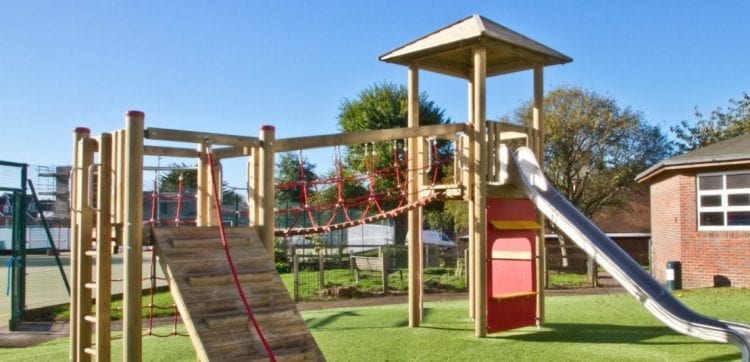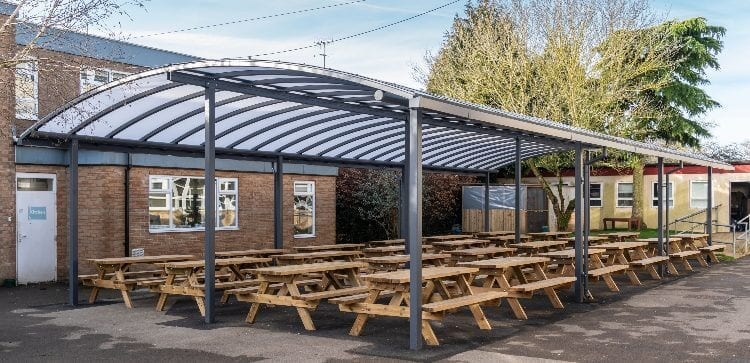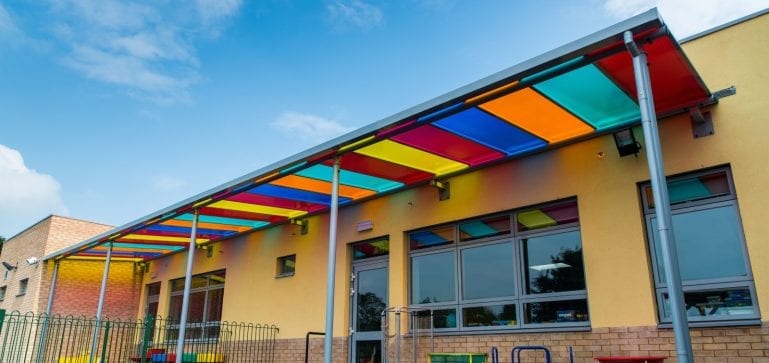While not all the skills learnt in the playtime are useful in later life (with the notable exception of the odd premier league footballer!), most will recognise it as one of the most memorable parts of growing-up and the time when some of us are lucky enough to lay the foundations for life-long friendships. The noisy, slightly chaotic school playground may not seem a vital part of early years’ education but research shows that it can have a major impact on learning, development and the general health, happiness and well-being of primary school children.
Play is at the heart of childhood, when children are well and truly being themselves, but for many children the opportunity to play outdoors, enjoying physical activity and fresh-air, is limited. Today’s generation of children aged 4-11 years spend many hours playing computer games, on iPads and watching TV and so this precious period of activity is more important than ever to counter long periods indoors in front of a screen. Shocking recent studies that a third of children play outside for 30 minutes or less in a typical day. That’s less time outdoors than prison inmates get! Of the 1,000 UK families who took part in the survey, 82% blamed the unreliable British weather.
Encouraging more outdoor play is not just about the physical aspect of their health though. Active play during breaks and lunchtimes are also helping children’s mental health. It teaches them how to discuss their views and feelings and listen to those of others. The practice of expressing themselves, risk-taking and sharing are all important stepping stones on the path to approaching adulthood with the ability to discuss, debate and empathise.
It’s also worth noting that children can often be affected by stress in their young lives but whereas an adult has the self-awareness to acknowledge the symptoms and seek help, children cannot. However playtime provides them with an outlet for ‘letting off steam’. During this brief period where they get to decide what games to play and develop their social skills, they are also gaining in confidence and are more likely to feel good about themselves and their choices.
But what are the effects of playtime on education? A lack of playtime has been found to have a negative impact on children’s performance in the classroom. Another study, discovered that the longer children worked on their studies in the classroom without a break, the less attentive they became. Another study of around 10,000 children found their behavior was better when they had at least a 15 minute playtime during the school day.
It’s fair to say then that playtime endures as a vital part of our formative years, and is the basis for recommendations from several school bodies for schools to improve the opportunities for play wherever and whenever possible.
With bad weather already having been cited as a reason for staying indoors what can be done when the rain is pouring and children can’t get out of the classroom to enjoy their playtime? Many schools have recognised that investing in facilities to promote play all-year-round is an important part of good teaching.
Such facilities include covered areas that provide shelter from the rain and also harmful UV rays on sunny days. As one of the UK’s leading specialists in covered outdoor spaces for schools we provide school canopies made from steel with polycarbonate roofing. We provide a bespoke solution for the problem and can be free-standing or fitted to the side of a school to provide an all-weather outdoor area. They can be open-sided or can be fully enclosed with high spec roller-shutters. With over 50 colours to choose from playground canopies can provide a bright, fun, safe and friendly environment for play.


